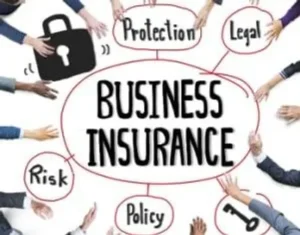Running a small business is an exciting adventure, but it comes with its share of risks. Whether you’re just starting out or have been in business for years, insurance is a vital safety net that protects your hard work from unforeseen challenges. From natural disasters to legal disputes, the right insurance policy can mean the difference between recovery and closure. In this blog post, we’ll explore the types of insurance every small business should consider, how to assess your specific needs, and tips for getting the best small business insurance quotes.
Types of Essential Insurance for Small Businesses
General Liability Insurance
General liability insurance is a must-have for any business. It covers claims of bodily injury, property damage, and personal or advertising injury. For instance, if a customer slips and falls in your store, general liability insurance will cover medical expenses and legal fees if they decide to sue. This type of insurance is often required by landlords and clients before they agree to work with you.
Professional Liability Insurance
Also known as errors and omissions (E&O) insurance, professional liability insurance is crucial for businesses that provide services or advice. This policy covers legal costs if a client claims that your services caused them financial harm. For example, if you’re a consultant and a client blames you for their financial loss, professional liability insurance will cover legal defense and any settlements.
Property Insurance
Property insurance protects your business’s physical assets, such as buildings, equipment, and inventory. It covers damages caused by events like fire, theft, and natural disasters. If a fire destroys your office, property insurance will help cover the cost of repairs or replacements, ensuring your business can continue operating.
Workers’ Compensation Insurance
If you have employees, workers’ compensation insurance is not just a good idea—it’s often a legal requirement. This policy covers medical expenses and lost wages for employees who get injured or fall ill due to their job. Workers’ compensation also protects your business from lawsuits related to workplace injuries.
Assessing Your Business’s Insurance Needs
Understand Your Risks
Every business has unique risks. Begin by identifying potential threats specific to your industry and location. For example, a restaurant might face risks related to foodborne illnesses, while a tech startup might be more concerned with cybersecurity threats. Understanding these risks will help you determine which types of insurance are most crucial.
Evaluate Your Assets
Take stock of your business’s assets, including physical property, intellectual property, and human resources. This will help you estimate the amount of coverage you need. Ensure you include everything from your office space and equipment to your brand reputation and customer data.
Consult with an Insurance Professional
An experienced insurance broker or agent can provide valuable insights into the types and amounts of coverage your business requires. They can help you understand policy details and exclusions, ensuring you make informed decisions.
The Process of Obtaining Insurance Quotes
Gather Your Information
Before you start shopping for insurance quotes, gather all necessary information about your business. This includes your business’s legal structure, number of employees, annual revenue, and detailed descriptions of your operations and assets. Having this information ready will streamline the quote process.
Compare Quotes
Obtain quotes from multiple insurance providers to compare coverage options and rates. Don’t just focus on price—consider the reputation of the insurer, the specifics of the coverage, and any additional benefits they offer. Using online comparison tools can make this process easier and more efficient.
Understand the Criteria for Rates
Insurance companies use various factors to determine your premiums. These can include the nature of your business, location, claims history, and the amount of coverage you need. Understanding these criteria can help you manage factors within your control to get better rates.
Tips for Getting the Best Small Business Insurance Quotes
Bundle Policies
Many insurers offer discounts if you purchase multiple policies from them. For example, bundling general liability and property insurance can save you money compared to buying each policy separately. Ask potential insurers about bundle options and discounts.
Improve Risk Management Practices
Implementing strong risk management practices can lower your insurance premiums. This includes maintaining a safe work environment, training employees on safety protocols, and investing in security measures like alarm systems and cybersecurity tools. Demonstrating that you actively manage risks can make you more attractive to insurers.
Regularly Review and Update Your Coverage
Your business’s needs will evolve over time. Regularly review your insurance policies to ensure they still meet your requirements. Update your coverage as your business grows, adds new services, or acquires additional assets. Keeping your insurance current helps avoid gaps in coverage and ensures you’re not overpaying for unnecessary protection.
Real-Life Success Stories
Case Study 1: Sarah’s Boutique
Sarah owns a small boutique that specializes in handmade jewelry. Initially, she only had general liability insurance. However, after consulting with an insurance broker, she realized she needed property insurance to protect her valuable inventory. One year later, a break-in occurred, but thanks to her comprehensive coverage, Sarah was able to replace the stolen items without financial strain.
Case Study 2: Jake’s IT Services
Jake runs an IT consulting firm. He thought professional liability insurance was unnecessary until a client sued him for a failed project. Fortunately, Jake had taken his broker’s advice and secured professional liability coverage. The insurance covered his legal fees and the settlement, allowing him to continue his business without significant financial loss.
Case Study 3: Emily’s Cafe
Emily’s cafe employs a small team of baristas. She initially overlooked workers’ compensation insurance until one of her employees slipped in the kitchen and sustained an injury. The workers’ compensation policy covered medical expenses and lost wages, and Emily avoided a potentially costly lawsuit.
Conclusion
Being adequately insured is crucial for the sustainability and growth of your small business. Insurance not only protects your assets but also gives you peace of mind to focus on what you do best—running your business. Whether you’re just starting out or looking to reassess your current policies, taking the time to understand and invest in the right insurance coverage is a wise move.
If you’re ready to explore your options and get the best small business insurance quotes, don’t wait. Speak with an insurance professional today, and safeguard your business’s future.



